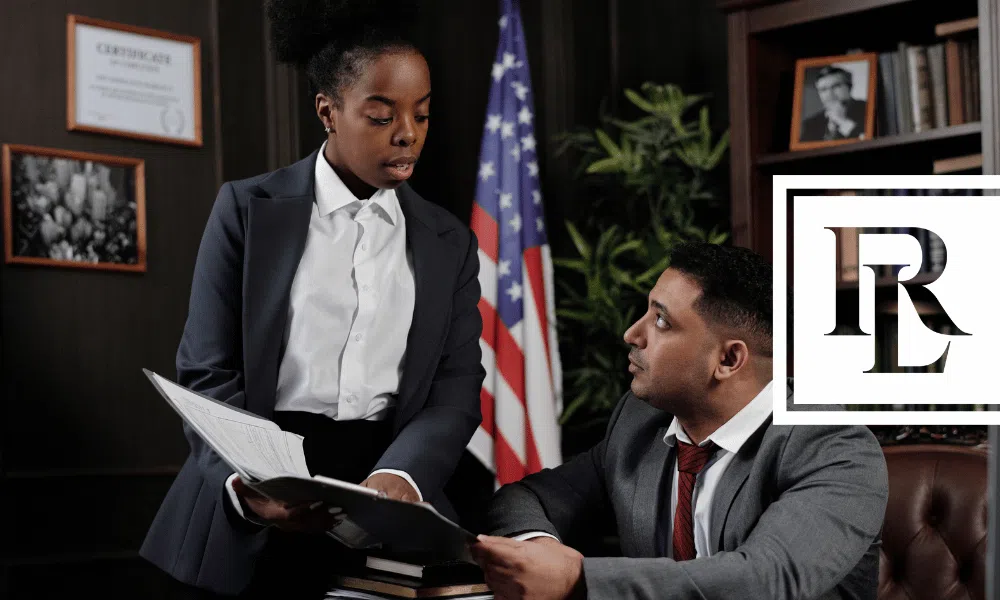Home » Veteran's Disability Lawyer » Veteran's Disability Lawyer
Legally Reviewed by:
Last Updated:
August 18, 2025
VA Disability Benefits With an Unfavorable Discharge
Dealing with a Negative Character of Discharge Determination?
The unique stressors of military service can have a harmful impact on service members, leading to circumstances that result in an unfavorable discharge. Unfavorable discharges — otherwise known as “less-than-honorable” discharges — can present barriers in veterans’ access to employment, housing, disability benefits, and more. For many, the stigma of an unfavorable military discharge casts a long shadow in a veterans civilian life. However, there are options to pursue if you feel that your discharge status unfairly reflects the circumstances of your military service.
Overcoming an Unfavorable Military Discharge
When a veteran with an unfavorable discharge applies for disability benefits, VA will review the veterans service to determine whether there is a regulatory or statutory bar to benefits — which prevents the veteran from receiving VA disability compensation. This process results in a decision called a Character of Discharge (COD) Determination. In a COD decision, VA essentially determines, on a case-by-case basis, whether the veteran is eligible for benefits — before even reviewing the merit of the veterans disability claims.
Example of Negative Character of Discharge (COD) Determination.
If you are a veteran seeking VA disability benefits with an unfavorable discharge, contact us today! Our team has years of experience overcoming negative Character of Discharge Determinations, so that veterans can finally receive the VA benefits that they deserve.
How to Fight for VA Benefits with an Unfavorable Discharge
A negative Character of Discharge Determination does not mean the end of the road; a veteran can file an appeal to contest VA’s finding that they aren’t eligible for benefits. In fact, VA recently made it easier for even more veterans to qualify despite their unfavorable military discharge.
The key to a positive outcome in this process is whether there are any mitigating circumstances explaining the conduct that resulted in the unfavorable discharge. Under the latest regulations, VA must consider a multitude of factors, such as:
- Mental or cognitive impairment present during service
- Physical health, to include physical trauma or any side effects of medication
- Combat-related or overseas-related hardship
- Sexual abuse/assault
- Duress, coercion, or desperation
- Family obligations or comparable obligations to third parties
- Age, education, cultural background, and judgmental maturity
- A valid legal defense would have precluded a conviction for AWOL or misconduct under the UCMJ. 38 CFR 3.12(e)(2).
At Rob Levine Law, our experienced VA disability team has helped countless veterans secure VA disability benefits despite their unfavorable discharge. Contact us today to see if we can fight for you!
FAQs About Your VA Disability Claim
Can I receive VA disability compensation and continue to work?
In the Social Security disability system, in order to receive benefits, the standard is, “you are not capable of any form of gainful employment.” Unlike Social Security Disability, you can work while receiving VA disability compensation. Your VA disability benefits is based on how your service-connected disabilities impact your ability to work.
Can I receive VA disability compensation and Social Security Disability benefits at the same time?
Social Security Disability Income (SSDI) does not have a barrier to net worth or income provisions. Regardless of the home, the vehicle you own, or investments you’ve made – or alimony or pension from previous employment, this would not prohibit you from receiving SSDI. Similarly, this would not prohibit you from qualifying and receiving VA disability benefits. Even if you were to qualify for a 100% TDIU rating, you would still qualify for SSDI benefits either under the SSDI guidelines or the VA Disability guidelines.
How long will the VA take to decide my disability case?
The average length of time to adjudicate any claim or appeal depends on many factors, including the type of appeal or claim, the Regional Office, the number of disabilities to decide, any necessary development, and the overall complexity of the case. Cases in the VA’s legacy appeal system can take years. In contrast, the VA has set the following timeliness goal for adjudicating AMA appeals:
- Supplemental Claims: within 125 days
- Higher Level Review: within 125 days
- Board of Veterans’ Appeals – Direct Review Docket: within 365 days
- Board of Veterans’ Appeals – Evidence and Hearing Docket: over 365 days
Do I have to hire a Veterans Disability lawyer?
No, the VA does not require you to hire a lawyer for your appeal. However, remember that the VA also unfairly denied your benefits. Statistics show that veterans with representation receive more benefits, faster. The Veterans Disability attorneys at Rob Levine Law know the law as well as the ins and outs of the VA system. When you combine an experienced, knowledgeable Veterans Disability attorney with a veteran who can assist by explaining the details of the facts of a case, there is no better team to help you get the disability benefits that you deserve.
Can You Receive VA Disability Benefits with a OTH Discharge?
Yes, if there are mitigating circumstances (like mental illness or TBI) that explain the conduct that resulted in the less-than-honorable discharge. These types of cases can often last years without an experienced representative who can overcome VA’s negative assessment of your military discharge. Learn more about the Character of Discharge Determination process here.
What does a Veterans Disability lawyer do?
An effective attorney can put you in a position to win your appeal the first time around, saving you years of disappointment and frustration. Veterans’ claims often get caught in a cycle of denial, appeal, remand, denial, appeal, remand, denial, appeal, remand, and so on. An experienced attorney can effectively present the law and the facts to the VA the first time around, which in many instances gets veterans their disability benefits faster. When you choose our dedicated team of experts at Rob Levine Law to represent you, we take an all-hands-on-deck approach to win your case. As part of our proven process, our team will:
- File your appeal with the VA;
- Construct a personalized evidence development plan tailored to each claim;
- Perform cutting-edge service record and medical research;
- Draft a comprehensive legal brief in support of your appeal; and
- Routinely follow up with you to provide an update on the status of your case.
Get Your Free Consultation Now
"*" indicates required fields
Notable Case Results
$435,000
Awarded 100% for PTSD based on witnessing the death of a service member who drowned.
$540,000
Client served in the Army from 1964 to 1965 where they ran a squad. During his time he was severly injured and did not gain 100% disablity until hiring us and we were able to tie the back benefits to his time in service.
$410,000
100% benefits for Army National Guard veteran with over 13 years of backpay, PTSD and Erectile Dysfunction.
$750,000
100% benefits granted served in Air Force and was sexually assualted by a service psychologist during the entrance exam. Developed PTSD, anxiety, depression. Suffered for years from social isolation. Obtained benefits due back to 1982.
Exceptional Service and Advocacy for Veterans
Rob Levine Law has been very helpful in my request to receive compensation benefits for injuries I incurred while in service. I’ve suggested their services to a number of veterans seeking legal assistance. I highly recommend them and will continue to seek their services and advice.
Sandyabdullah M.
Dedicated Representation for Vietnam Veterans
I am a Marine Vietnam Combat Veteran who was exposed to Agent Orange. This law firm has been and is currently representing me knowledgeably, competently, and professionally. I would recommend them to any veteran needing assistance.
Rick C.
A Great Communicator and Advocate for Veterans
As a military veteran, I have pursued a disability claim on my own and with multiple NSOs. While my disability was over 50%, it was obvious to me that a law firm was necessary to help navigate the appeal process and all the details involved. I was astounded at how knowledgeable the firm was about […]
Meghann G.
Additional Resources
Related Pages
At Rob Levine Law, we work every day on behalf of those who have fought and sacrificed so much for...
Rob Levine, Veterans Disability Lawyer APPEALS MODERNIZATION (AMA) In February 2019, the VA launched a new appeals system in accordance...
No, the VA does not require you to hire a lawyer for your appeal. However, remember that the VA also...




